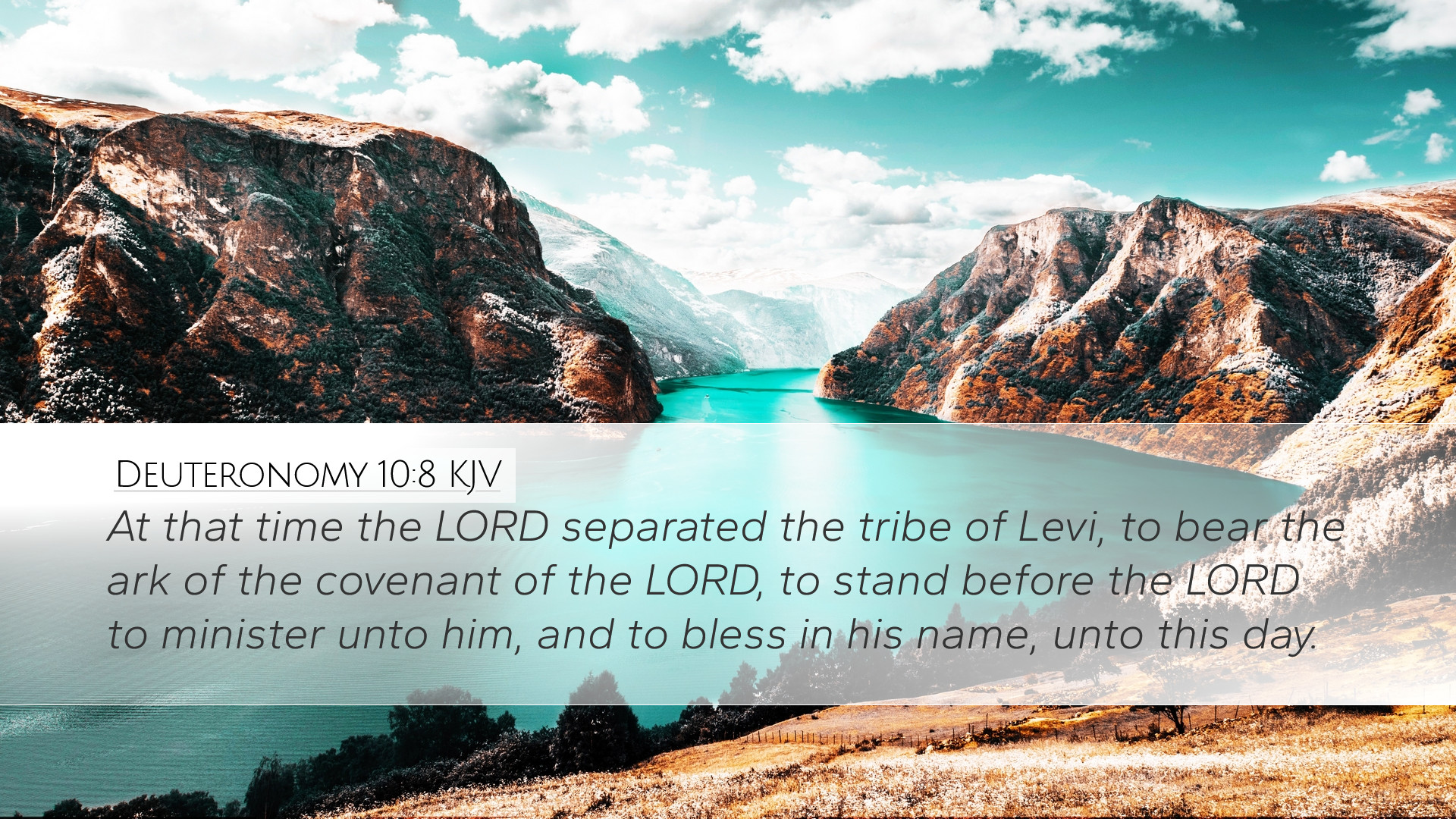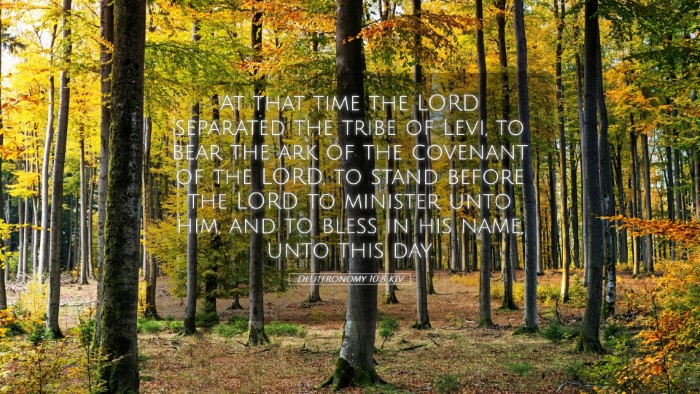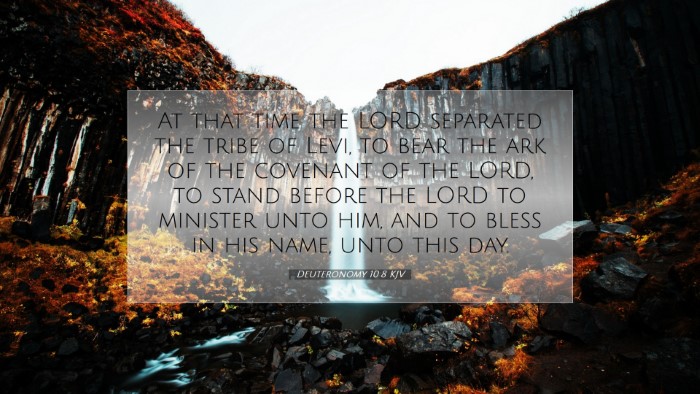Commentary on Deuteronomy 10:8
Verse Text: "At that time the Lord separated the tribe of Levi to bear the ark of the covenant of the Lord, to stand before the Lord to minister unto him, and to bless in his name, unto this day."
Introduction
This passage is pivotal within the context of Israel's worship and priesthood. It highlights the divine designation of the tribe of Levi for particular sacred duties, illustrating both the honor bestowed upon the Levites and the serious nature of their responsibilities. The commentaries examined here offer valuable insights into the implications of this separation and its relation to God’s covenantal relationship with Israel.
Historical Context
The Levitical priesthood is rooted in the history of Israel's formation as a people chosen by God. Matthew Henry emphasizes that God's selection of the Levites was not arbitrary but was rooted in their faithfulness at critical moments, particularly during the sin of the golden calf (Exodus 32:26-29). This suggests that God's selections are often based on fidelity and loyalty, which should serve as a reminder of the importance of being steadfast in faith.
The Role of the Levites
Albert Barnes articulates the essential duties assigned to the Levites: bearing the Ark of the Covenant, ministering before the Lord, and pronouncing blessings in God's name. This tripartite role encapsulates the essence of Levitical service and signifies a multi-faceted relationship between the Levites and God. Each duty carries with it a weight of responsibility that the Levites must uphold, emphasizing their unique status among Israel's tribes.
Spiritual Significance
Adam Clarke notes that this separation is symbolic of a larger divine purpose as it represents God's intimate relationship with His people. The Levites serve as intermediaries, a role that underscores the notion of mediation in worship. Their continuous service signifies not just duty but also a deep spiritual commitment to God’s covenant, which remains relevant for believers today. The distinction illustrates God's desire for a people set apart, devoted to Him and His service.
Theological Implications
The implications of Deuteronomy 10:8 extend beyond historical boundaries; they carry significant theological weight. The responsibilities of the Levites reflect God's holiness and the necessity for a dedicated group tasked with maintaining the sanctity of worship. Matthew Henry points out that this separation was necessary for ensuring that the worship of God remained pure and undiluted by common practices.
-
Priestly Mediation: The concept of priestly mediation continues in Christian theology, where Christ is viewed as the ultimate high priest. The Levites’ role can be seen as a foreshadowing of Christ’s redemptive work.
-
Holiness and Separation: The call to be a holy nation remains a central theme throughout Scripture, and the Levites serve as a tangible example of living in a manner that is distinct and pleasing to God.
Application for Today
For pastors, students, and theologians, this verse serves as a reminder of the importance of calling and consecration in Christian service. It invites reflection on one's own role in the body of Christ and how they might faithfully serve in their respective gifts.
-
Leadership in Worship: Leaders must strive to maintain the purity of worship in their communities, echoing the Levites' dedication to God’s service.
-
Serving Others: The Levites were tasked with blessings — similarly, modern believers are called to bless and serve those around them as reflections of God’s grace and mercy.
-
Faithfulness in Trials: Just as the Levites were chosen for their faithfulness, individuals today are reminded to remain steadfast in faith amid life’s challenges.
Conclusion
Deuteronomy 10:8 encapsulates the sacred calling of the Levites, representing the broader themes of separation, service, and the covenantal relationship God desires with His people. The insights from Henry, Barnes, and Clarke not only bring forth historical and theological perspectives but also offer practical applications for contemporary faith communities. As modern believers reflect upon this scripture, they are encouraged to become active participants in God’s plan, embodying the principles of holiness, service, and dedication that the Levites exemplified.


